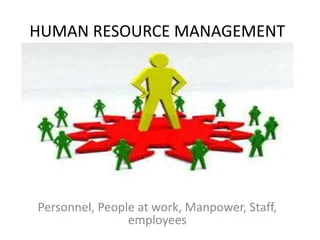In today’s fast-paced business environment, Human Resources (HR) plays a pivotal role in shaping the success of organizations. Whether in Oxford, known for its prestigious academic institutions, or Warwick, with its vibrant business community, HR professionals are at the forefront of managing talent, fostering workplace culture, and ensuring compliance with labor laws. In this article, we’ll explore the significance of HR in Oxford in these two dynamic cities and how they adapt to the unique challenges they face.
Understanding HR
What is Human Resources?
Human Resources (HR) is the department within an organization that focuses on recruiting, managing, and developing employees. The primary goal of HR is to maximize employee performance while ensuring the organization achieves its strategic objectives. This involves a range of functions, from hiring and onboarding new staff to implementing training programs and managing employee relations.
Importance of HR in Businesses
The importance of HR cannot be overstated. Effective HR practices lead to higher employee satisfaction, increased productivity, and reduced turnover rates. In cities like Oxford and Warwick, where the competition for talent is fierce, having a strong HR strategy can be the difference between thriving and merely surviving. HR professionals act as a bridge between management and employees, ensuring that the workforce is motivated and aligned with the company’s goals.
HR in Oxford
Overview of Oxford’s Business Landscape
Oxford is not just famous for its university; it also boasts a thriving economy driven by sectors such as education, healthcare, and technology. The presence of numerous startups and established companies creates a robust job market, making HR even more critical in this environment. Companies in Oxford need to be strategic in their approach to talent acquisition and employee engagement to maintain a competitive edge.
Key HR Functions in Oxford
HR professionals in Oxford perform several essential functions to support the local business community.
Talent Acquisition
Finding the right talent is one of the foremost challenges for HR in Oxford. With a highly educated population, companies must refine their recruitment strategies to attract the best candidates. This involves using innovative techniques, such as leveraging social media platforms and hosting job fairs, to connect with potential employees.
Employee Development
Continuous employee development is vital for retaining top talent. HR in Oxford focuses on providing training programs, mentorship opportunities, and career progression paths to ensure employees are engaged and motivated. Investing in employees’ skills not only enhances their productivity but also strengthens the organization’s overall performance.
Compliance and Legal Issues
Navigating the complexities of employment law is another critical function of HR. In Oxford, HR professionals must stay updated on local regulations to ensure compliance and mitigate legal risks. This includes understanding labor laws, health and safety regulations, and anti-discrimination policies.
HR in Warwick
Overview of Warwick’s Business Environment
Warwick’s business environment is characterized by a diverse mix of industries, including manufacturing, technology, and service sectors. This diversity presents unique HR challenges and opportunities, as HR in Warwick professionals must tailor their strategies to meet the varying needs of different industries.
Key HR Functions in Warwick
In Warwick, HR professionals engage in several critical functions to support the local business landscape.
Recruitment Strategies
Recruitment in Warwick requires a strategic approach, as companies seek candidates with specific skills and experience. HR departments utilize various strategies, such as targeted job advertisements and partnerships with local educational institutions, to attract qualified applicants. By understanding the local talent pool, HR can effectively align recruitment efforts with the organization’s needs.
Performance Management
Performance management is crucial for ensuring that employees meet their objectives and contribute to the organization’s success. HR in Warwick focuses on implementing effective performance evaluation systems, providing constructive feedback, and establishing clear performance metrics. This ensures that employees understand their roles and are motivated to achieve their goals.
Employee Relations
Maintaining positive employee relations is essential for fostering a healthy workplace culture. HR professionals in Warwick work to address employee grievances, mediate conflicts, and promote open communication. By creating an inclusive environment, HR helps enhance employee morale and retention.
Challenges Faced by HR
Common HR Challenges in Oxford and Warwick
Despite the importance of HR, professionals in both Oxford and Warwick face several challenges that can hinder their effectiveness. Common issues include high turnover rates, the need for upskilling in a rapidly changing job market, and ensuring diversity and inclusion in hiring practices.
Strategies to Overcome Challenges
To overcome these challenges, HR departments can implement several strategies. For example, focusing on employee engagement through regular feedback and recognition can help reduce turnover. Additionally, providing training programs that address skill gaps can equip employees to adapt to industry changes, ensuring the organization remains competitive.
Future of HR in Oxford and Warwick
Trends Shaping the HR Landscape
The future of HR in Oxford and Warwick is influenced by various trends, including the rise of remote work, the increasing importance of mental health support, and the use of data analytics in HR decision-making. HR professionals must stay ahead of these trends to create effective strategies that align with the evolving needs of the workforce.
The Role of Technology in HR
Technology is transforming the HR landscape, making processes more efficient and data-driven. HR software solutions are becoming increasingly popular for managing recruitment, performance evaluations, and employee engagement initiatives. By leveraging technology, HR professionals in Oxford and Warwick can streamline operations and enhance their ability to make informed decisions.
Conclusion
The role of HR in Oxford and Warwick is essential for fostering a productive and engaged workforce. By understanding the unique challenges and opportunities presented by each city, HR professionals can tailor their strategies to meet the needs of their organizations. As the business landscape continues to evolve, so too must the practices of HR, ensuring they remain at the forefront of organizational success.








